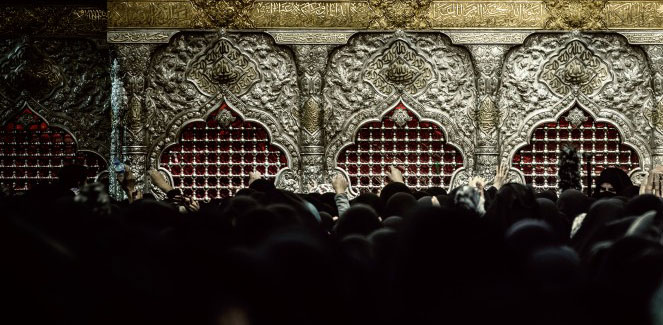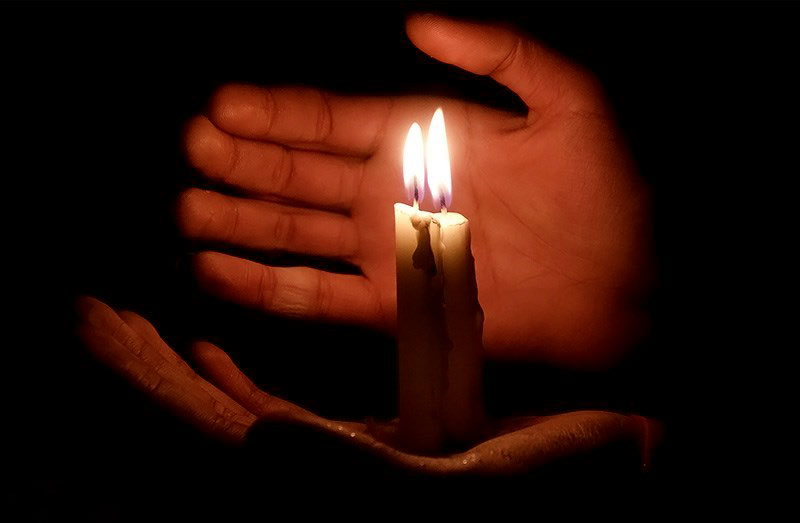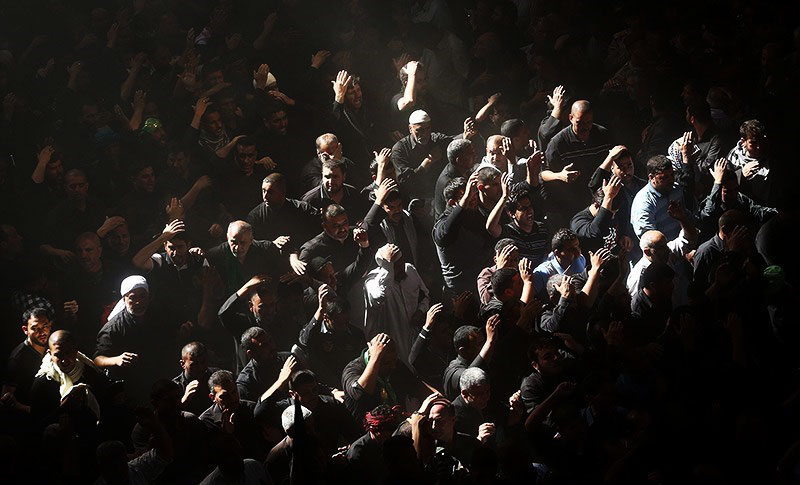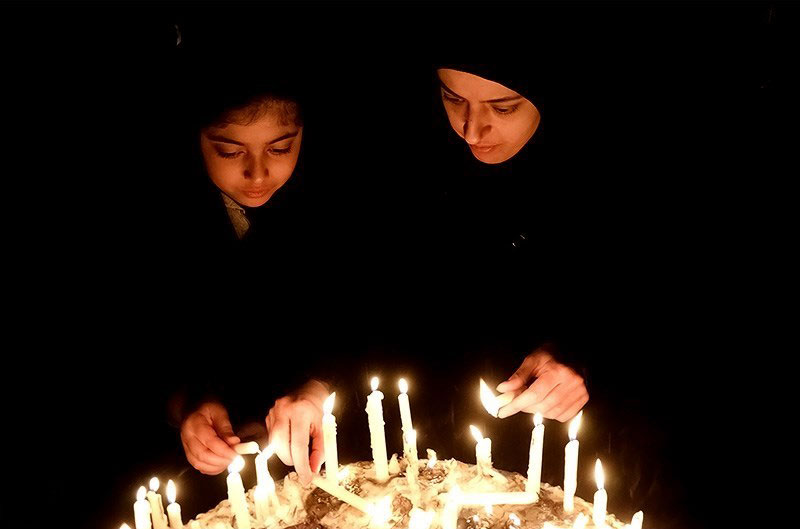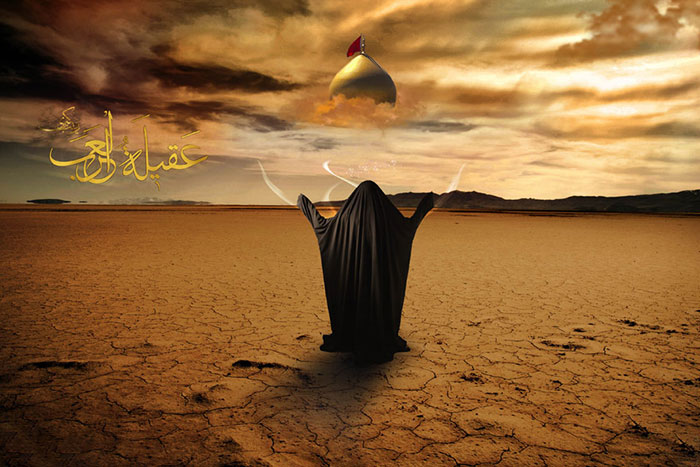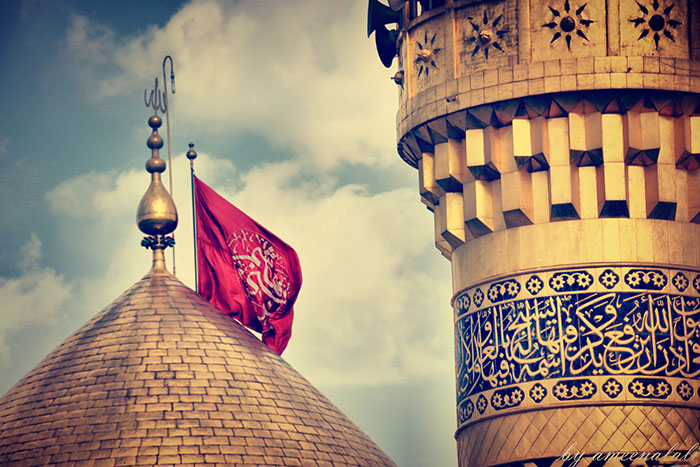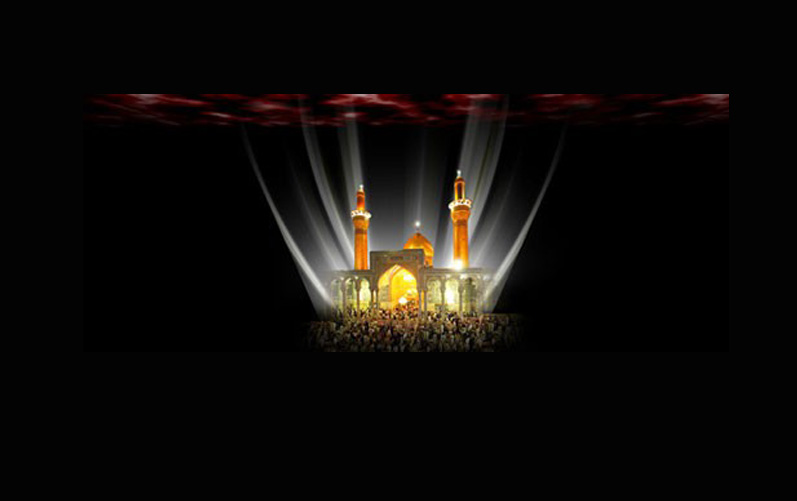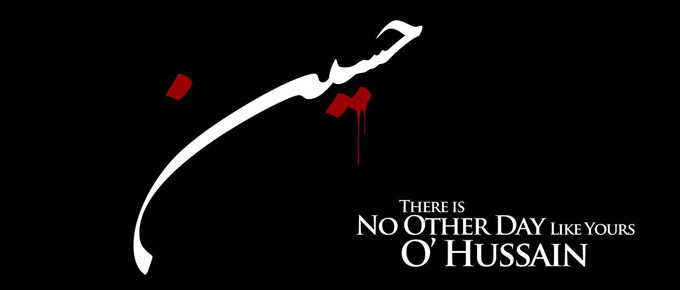
Students of the so called historical method argue that in terms of immediate history, nothing was achieved as a result of the events on `Ashura, i.e. Muharram. They say that it was a tragedy, but its overall effect on the political events of the period was negligible. This is their conclusion and when they are asked why the Islamic books of history, written by scholars many centuries ago, devote more space, more pages, more words, to that event than to any other in the history of Islam, why there are more books devoted to that event in Islamic history than to any other, they shrug their shoulders and mumble something about the Shi`i influence on the writing of history. Yet, many of the writers are not members of the Shi’a. The famous Islamic historian Tabari devoted nearly two hundred pages to the story. No other event receives as much attention from him. He most certainly was not a member of the Shi`a.
Cosmic Nature of the Martyrdom of Imam Husayn (A)
The fact is that these petty scholars with their tendentious criticisms are concerned only with the narrow details of political history. They do not perceive the cosmic nature of the martyrdom of Imam Husayn (A). For them, history is the restricted study of immediate cause and effect in political developments. But real history is about something far more important than that. Real history concerns men’s relationship with God and how that relationship affects men’s relationships with each other. Real history attempts to show the cosmic significance of events, not their narrow immediate political results. The tragedy of Karbala’, the martyrdom of Imam Husayn (A), is one of those events of cosmic significance. Its lessons concern not just one group of men and their relationship to the world, but all mankind. It is a moral paradigm. It teaches sacrifice and opposition to injustice: it teaches integrity of purpose, love of family, gentleness, and bravery. In fact, in the account of the tragic journey and martyrdom of Imam Husayn (A), there are lessons in all the moral virtues. Perhaps the one that strikes most of us most forcefully is our own inadequacy in comparison with the enormous sacrifice Imam Husayn (A) made on behalf of mankind.
Sacrifice of Imam Husayn (A) and Will of God
Imam (A) voluntarily allowed himself to be the greatest sacrifice on this earth, seeking to fulfil the will of God. On this day, nearly fourteen hundred years ago, the Imam prepared himself for martyrdom. The symbols of his martyrdom are many, the suffering dreadful. He watched as, one after another, his followers went to their deaths; as, one after another, his kinsmen went to their deaths; even his baby son was slaughtered in his arms as he gave him a farewell hug.
Bravery of Imam Husyn (A)
Yet Imam Husayn (A) was not merely the example of a great martyrdom, he was also the exemplar of bravery and fortitude. He fought a brave and fierce fight against so many. Such was his power and strength, such was the aura of his person and he was by no means a young man that the only way his enemies could kill him was by a whole group of them attacking him at the same time and stabbing him together. The humiliation of the death was total; the vindictiveness and wickedness of this action by men is illustrated by the fact that his clothes were ripped from his body and then horses ridden over it.
The Paradigm of all Unjust Deaths
The lesson is clear to us all: it shows the lengths of human wickedness. Imam Husayn (A) exemplifies all suffering humanity. In that martyrdom, in those blows to his body, in the trampling of horses over it, Imam Husayn (A) is the model, the paradigm of all unjust deaths, of all humans suffering.
Steadfastness in the way of Right Path
In this, his martyrdom teaches suffering men to endure, to remain steadfast in their belief in God. It also has a lesson to teach men who are more fortunate, that the world is a transitory place, worldly success is not an end in itself, and that man should always be aware of the suffering Imam Husayn (A) experienced. By their awareness of this they will learn to treat worldly success with humility. In the real sense of cosmic history, the martyrdom of Imam Husayn (A) is a mighty triumph, a wondrous victory. Who would know the name Yazid today except for the fact that he was responsible for the martyrdom of Imam Husayn (A) ? Otherwise he would just be another of the thousands of despots, tyrants, and bullies that have abused their authority, another footnote in the history of man. However, because his tyranny and wickedness was responsible for the good, the noble, the pure Imam’s martyrdom , he, by killing the Imam, the human model of goodness and bravery, has become the human model of injustice and wickedness.
The Victory of Truth over Falsehood
The triumph of Imam Husayn (A) lies in the fact that his inspiration has moved men to grieve for him throughout the centuries. The pure light of ennobled humanity in the Imam has motivated generation upon generation of the Shi’a, to suffer endless hardship, to keep his memory alive. The first beginnings of the majlis, the sessions held in honour of the martyrdom of Imam Husayn (A). are to be discerned in the first gatherings of the surviving family of the martyred Imam. Very soon these gatherings of grief developed outside the family to include others. Not long afterwards there was the majlis of the Kufan penitents, the tawwabin, when they gathered at his graveside to lament, to grieve, to prepare for martyrdom in the battle that was to come, to try, in some small way, to make them worthy of the sacrifice Imam Husayn (A) had made for them and all mankind. The triumph of the martyred Imam is such that every year on `Ashura, in places all over the world, the faithful gather together to remember the Imam.
A Threat for Tyranny
All despotic regimes have felt threatened by these majlises. Throughout the centuries they have tried to prevent them. At one time even the site of Imam Husayn (A)’s grave at Karbala’ was ploughed up. They feared the grief and lamentation for Imam Husayn (A) because in that grief and lamentation people remembered the goodness, the justice, the kindness, the gentleness, and the bravery of the martyred Imam (A). These were not qualities that tyrannical governments wished people to think about; their concern was bribery, corruption, nepotism, and naked force. They saw the threat to their world, to their values, to their position. Seeing it, they sought to suppress the memory of Imam Husayn (A). However, such was the power, the influence, the glory of that memory, that they could not remove it from the hearts of men, from the Shi’a of all the Imams, the Shi`a of Imam Husayn (A). The Importance of a Global Platform In one of his historic statements Imām al-Ĥusayn (A) clearly says that the main reason behind his uprising is to seek reform in the Muslim nation. Then he describes the path he would undertake to meet this aspiration: “I would like to invite towards good and shun the evil.” In order for him to carry out this reform immediately, the best place to go to was Makka, where pilgrims from all over the Muslim world would come to perform ‘Umra and Ĥajj. They would listen to his message, wake up, and relate the same to their people on their return. Historical records tell us that while in Makka, Muslims from different countries used to visit Imām al-Ĥusayn (A) day and night, and listen to what he had to say.
Opposition against Falsehood
The movement of Imām al-Ĥusayn (A) reveals the personality of Imam (A) as a great freedom seeker. He never allowed himself to submit to any government that does not obey the laws of God. In fact it is a practical manifestation of ‘Islām’ (submission to the will of God). Submitting to every call of disbelief or polytheism is to alienate from the path of utter submission to Almighty Allāh. Not surrendering to falsehood and remaining very steadfast in his stance, he taught every future human being ‘the lesson of steadfastness’ by not submitting to falsehood and oppression. And this unwavering stance remained until his martyrdom.
Seeking Refuge in Allah
Imam al-Ĥusayn (A)’s move to Makka also alludes to something highly important. His refuge to the Divine sanctity of safety, perhaps demonstrated that his only refuge is Allāh in whose house there is always safety: “In it are clear signs and whosoever enters therein is safe” (Quran, 3:97) Seeking refuge in the Divine sanctity, however, should transport us to a loftier meaning: one who really seeks refuge in Allāh is safe from all kinds of polytheism and oppression. It is not necessary for us to limit our understanding to the physical and tangible import of the verse. The safety referred to in the verse, however, is a legislative direction which creates responsibilities on the Muslim nation. In other words, Almighty Allah commands us to observe security in His house. No one is allowed to shed blood in there; no animal is to be injured, etc. But if some like Hajjāj bin Yūsuf al-Thaqafī, out of their disbelief, were to transgress the limits, they can endanger the lives of the like of the selfishly motivated ‘Abdullah bin Zubayr who despite having sought asylum in the holy precincts of the Ka’ba was killed therein. However, the safety can also refer to seeking the shelter of ‘one’s spirit’ in Almighty Allah. This meaning can also be understood by looking at some recommended supplications to be recited near the Ka’ba: O Allāh, surely You said ” and whosoever enters therein he/she would be safe”; therefore, save me from the punishment of Hell Fire. Therefore, one who seeks the protection of his spirit from Almighty Allah would undoubtedly be safe from every calamity that would ruin his spiritual life. If his physical life were to be sold for an exalted aim, he would never lose. Instead he would attain a lofty station and eternal salvation. If the leaders who govern Muslim nations of the world today were to understand and apply this lofty concept they would never assist terrorist and tyrant regimes whose evil nature is more apparent than ever today. Every concerned Muslim should try to understand and heed to the call of Imām al-Ĥusayn (A) which still echoes in the hearts and minds of the truth-seeking human beings: Indeed you know that the Messenger of Allah (s) said during his lifetime: “Whoever observes a sovereign legalizing what God has made unlawful, violating the covenant of God, opposing the Sunnah of the Messenger of God, and treating the creatures of God sinfully and oppressively, and does not oppose him with his speech and action, God has a right to bring him to the same fate as that of the tyrant…” “Don’t you see that what is true and right is not acted upon and what is false and wrong is not forbidden?…” “Is there any protector who defends the sanctuary of the Messenger of Allāh?”
References
—————
1. Bihar al-Anwar, Allama Majlisi, v. 44, p. 328 2. Al-Kafi, Thiqatu’l Islam al-Kulayna, v.4, p. 528 3. Bihar al-Anwar, Allama Majlisi, v. 44, p. 381 4. An Everlasting Instruction;Imam al-Husayn’s (‘a) Journey to Makka, Abu Muhammad Zaynu’l ‘Abidin 5. Tabari, op. Cit., 216 390. 6. Tabari, op. Cit., p. 360. 7. Tabari, op. Cit., p. 366. 8. Tabari, op. Cit., p. 368. 9. M. M. Shams al Din, op. cit., pp. 140 50. 10.Tabari, Ta’rikh, III, 1408. 11.Ashura Lectures 1990,(Yawm al-Tarwiya: a Day of Beginning and Ending in the Martyrdom of Imam Husayn),Dr. I.K.A Howard
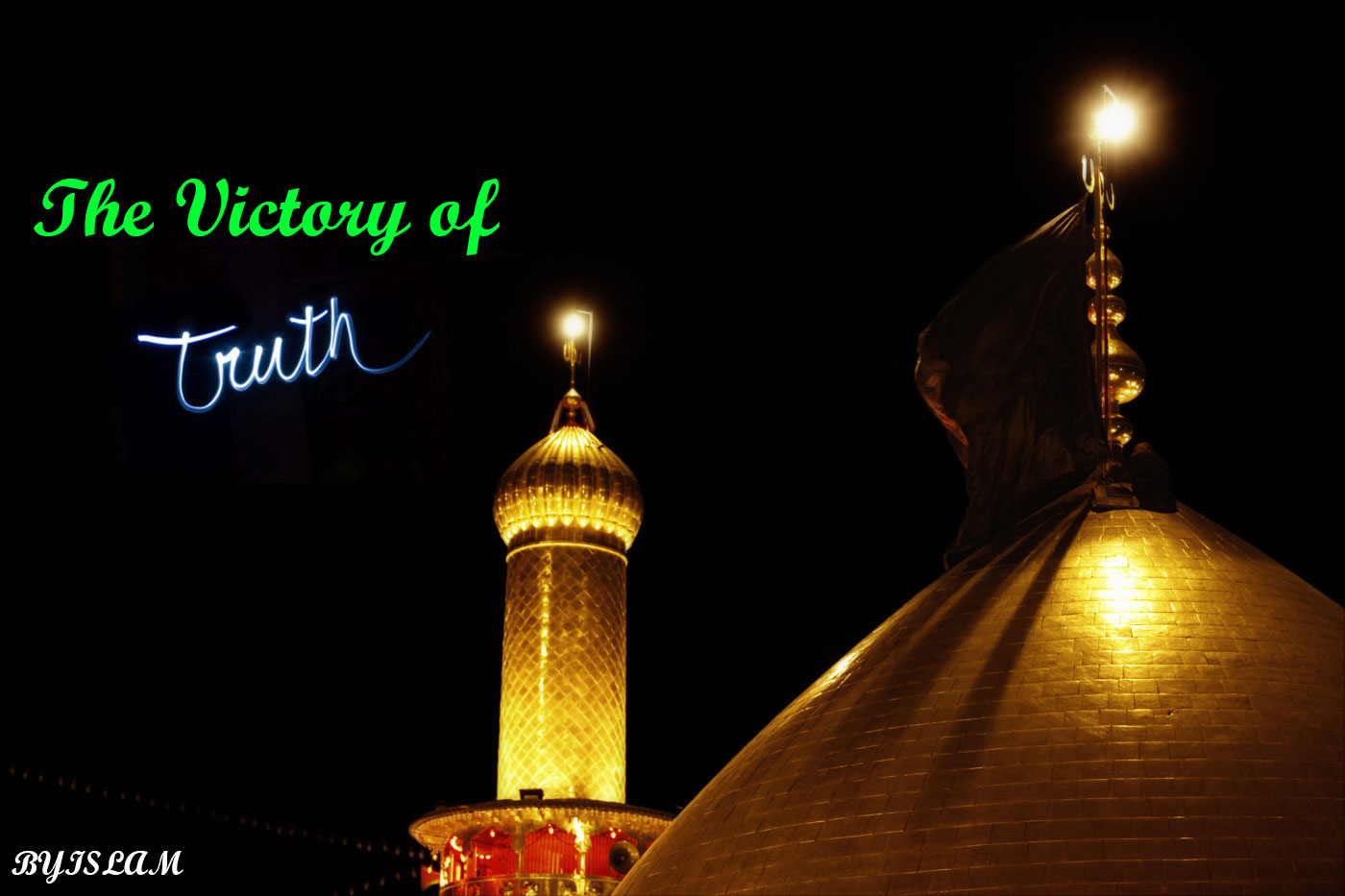 Zaynab [as.] grew into a fine statured young woman. Of her physical appearance little is known.
Zaynab [as.] grew into a fine statured young woman. Of her physical appearance little is known.

